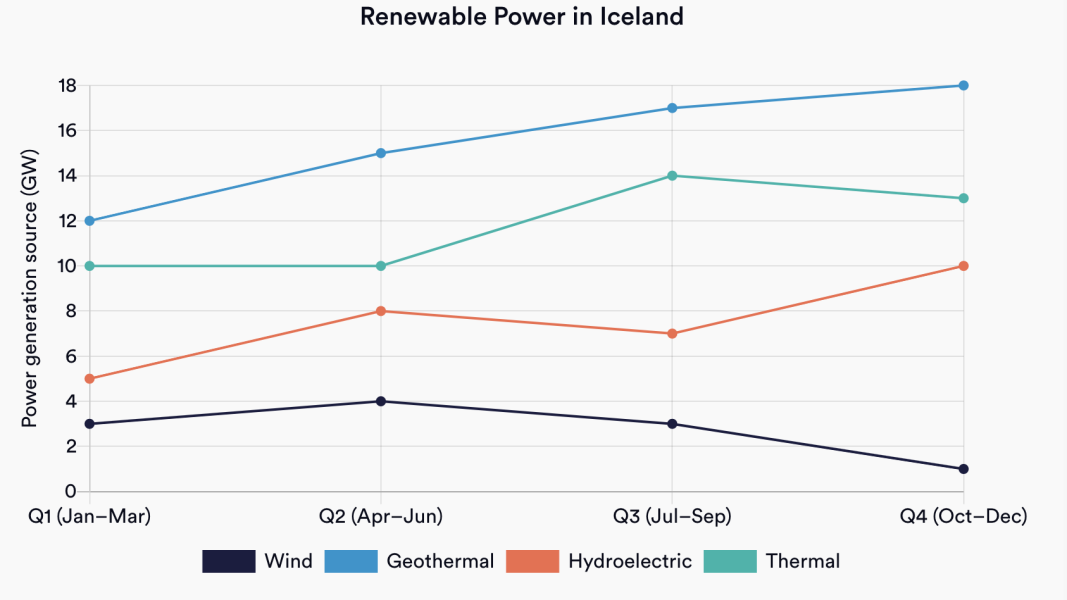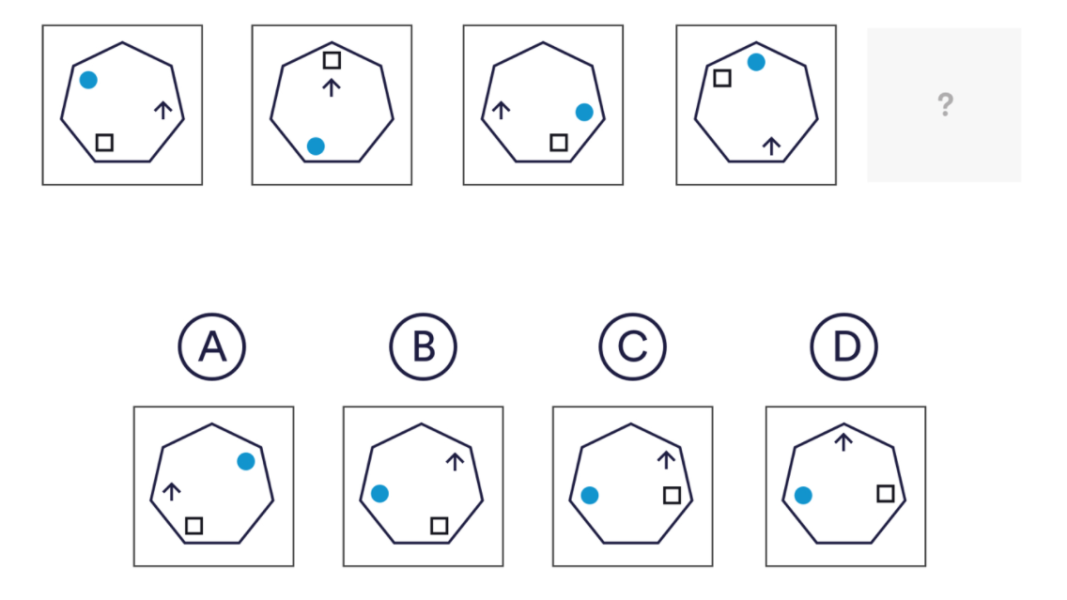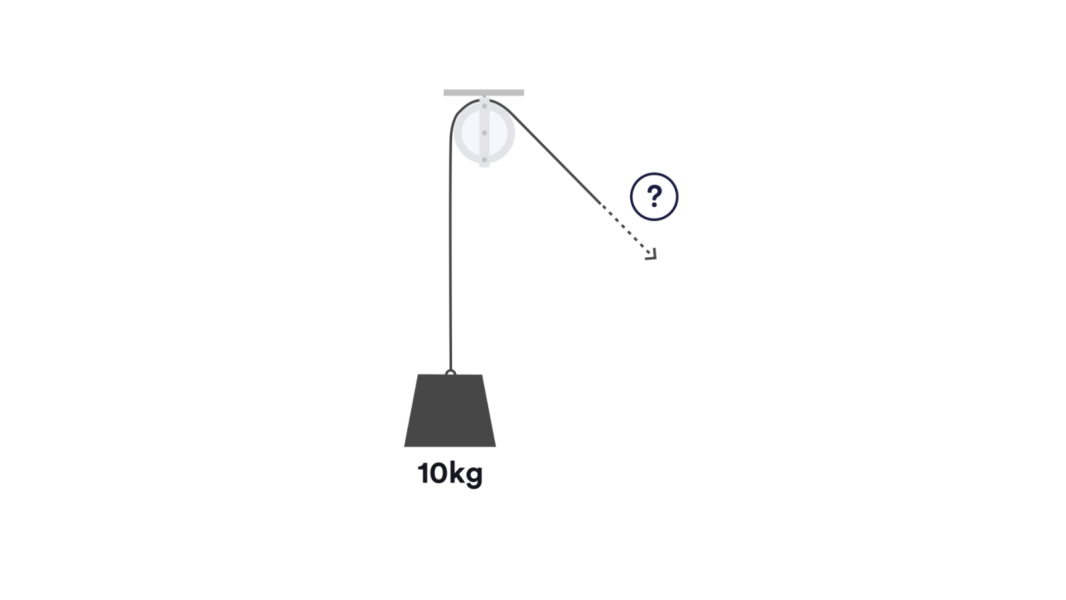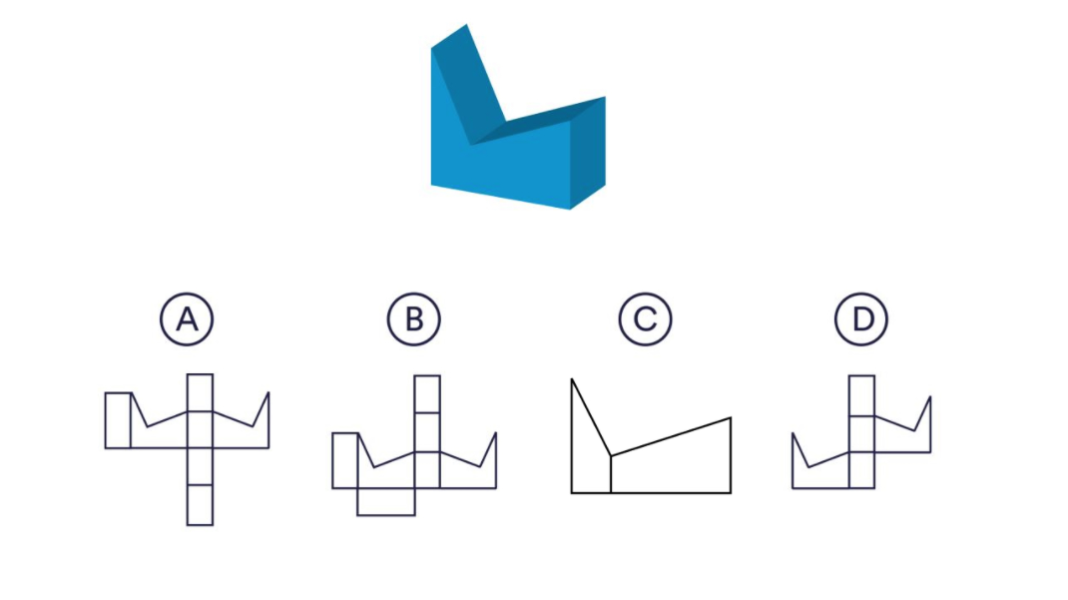What is a cognitive ability test?
Cognitive ability tests were first created at the end of the 19th century and are used as a measure of someone’s general mental ability.
Unlike more targeted aptitude tests (such as verbal or numerical reasoning) the cognitive ability test covers a range of aptitudes – often mechanical reasoning and spatial awareness – to assess an individual’s overall intelligence.
The shift between subjects can be challenging, especially if your strengths lie in one area, and the tight time limit makes it even harder. Practice and preparation is the key, especially for those aptitudes where you often get lower scores.
On a typical cognitive ability test, you might answer questions on any of these topics:
Getting familiar with the different styles of questions, the shift between topics and the speed in which you need to answer each question will really help when it comes to tackling the cognitive ability test as part of a job application.
Which employers use them, and why?
The cognitive ability test is recognised as one of the best indicators of a potential employee’s ability for the job they’re applying for.
Assessing not just your general aptitude, but your ability to work under pressure and shift between different styles of questions and challenges, the test can prove to an employer that you’ll make smart decisions, that you can think on your feet and that you know how to keep calm under pressure — all invaluable skills.
As a result, the cognitive ability test is used by a wide range of employers in industries as diverse as finance and the armed forces. However, it’s particularly useful when hiring for jobs that are known to require complex decision-making; roles such as pilot, doctor, lawyer and engineer, because the relationship between a strong cognitive ability test score and overall job performance here is considered to be closely linked.
Implementing a cognitive ability test can yield numerous benefits for employers, including improved hiring outcomes, reduced training periods, and various financial advantages. Considering the modest cost associated with administering and analyzing the test results, it’s no surprise that it has emerged as one of the most prevalent recruitment tools in use today.
Types of cognitive ability test
When you take a cognitive ability test you’ll cover a range of different subjects and questions that can be practised in greater detail as full tests.
In particular, you should aim to prepare for:
Numerical Ability Tests
Numerical ability tests are designed to examine your aptitude for numbers. The questions cover mathematical problems such as ratios and percentages, fractions, data interpretation and even financial analysis.
This type of test is particularly challenging as the questions are complex and the tight time limits don’t leave much more than a minute for you to answer each question.
Practising as many numerical reasoning tests as you can, particularly if this is an area you’re weaker at, will help you to perform better at the cognitive ability test, and will prove to an employer that you’re able to work with numbers quickly and accurately.
Verbal Ability Tests
Verbal ability tests evaluate your comprehension and communication skills.
You’ll read through dense passages of text and then be faced with a series of questions on what you’ve just read, to which you’ll have to select a multiple-choice answer (usually ‘true’, ‘false’ or ‘cannot say’).
No prior knowledge of the subject matter is needed. In fact, it’s important that you answer based just on what you’ve read, paying particular attention to what’s actually been stated, and what’s merely been inferred.
Scoring well at the verbal ability section of the cognitive ability test shows an employer that you’re able to assimilate lots of information quickly, that you have good comprehension skills and that you’re able to differentiate between fact and fiction.
Logical Ability Tests
Logical ability tests use pattern- and shape-based puzzles to assess your problem solving and logical thinking skills.
You’ll be required to look at a series of different shapes or patterns and use your logical abilities to work out the rule that connects them all, in order to finish the sequence.
The questions might be unlike anything you’ve ever seen before. And you won’t have long to answer each question — so practising as many of these tests as you can before taking a general cognitive ability test will help to improve both your speed and accuracy.
Mechanical Ability Tests
Mechanical ability tests assess your ability to understand different mechanical and electrical principles. Covering everything from energy and transformation, to levers, pulleys and pressure, these tests are commonly used when hiring for engineers and the armed forces.
The knowledge you’re being tested on here is very specific; it really does require prior reading rather than guesswork on the day.
Practising a few mechanical reasoning tests before taking a cognitive ability test will help you to brush up on your understanding of mechanical and electrical principles. It will also ensure you’re used to the question style and the speed at which you’ll need to answer every question.
Spatial Awareness Tests
Spatial awareness testsare an opportunity for you to demonstrate your ability to manipulate images and shapes into their two- and three-dimensional forms, and draw conclusions from limited amounts of information.
Typically set by architecture and engineering firms, the spatial awareness test helps an employer to see how good you are at working with shapes, as well as your problem-solving skills and time management.
Again, this style of question isn’t something you’ll necessarily have come across, which makes practising past tests all the more important.
Publishers of cognitive ability tests
There are numerous publishers who administer cognitive ability tests. If you can find out which organisation is publishing the test you’re taking, it means you can prepare using past tests from that publisher, and get used to the specific style and format of questions.
Here are a few of the most popular publishers used in the UK:
Revelian — An Australian test provider that uses tests created by psychologists for employers across the world.
SHL — One of the biggest test providers, offering assessments for 150 countries in 30 different languages.
Predictive Index — A popular pre-employment assessment provider that specialises in cognitive and behavioural tests.
















